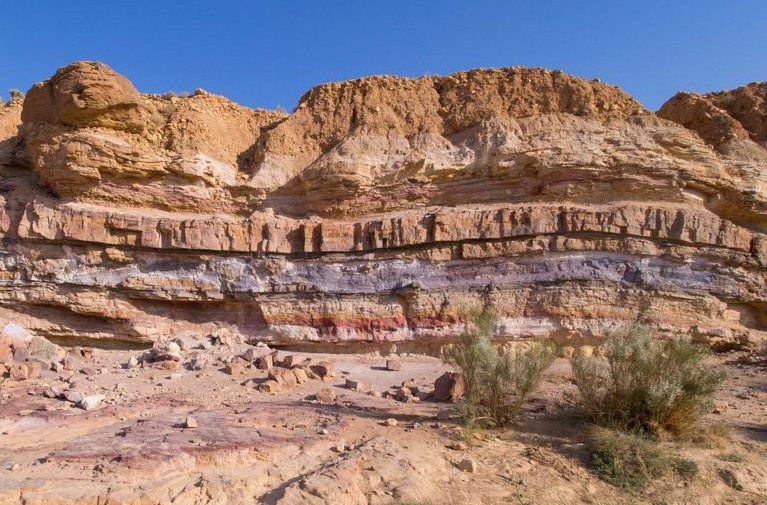Recently, as I’ve been reading a Zen book on anger (more on that subject another time), I came across a conversation between the author and Patrick Hawk, a Buddhist teacher and Catholic priest (really). Here’s what he said (paraphrased by the authors):
“One cause of the persistence of anger is that we insist that our lives have meaning. On the surface, the search for a meaningful life might sound exemplary but…the problem arises when we insist that it be the meaning we choose….According to Buddhism, there is no inherent meaning in anything. Everything just is—just as it is. By choosing certain goals or charting a particular meaning or course for our lives, we arbitrarily shut out many of the options open to us. Then when the universe does not bow to our will and fulfill the goal or meaning we have chosen, that causes disappointment and can leave us feeling perpetually angry.
“No inherent meaning in anything?” I found myself vacillating between resisting this statement and begrudgingly accept the truth in this—after all, if the universe and Earth weren’t intentionally created but just formed, if life just evolved from simple chemical reactions—can they have any meaning? If we are born, live, and then die, all in a minute of Gaia’s life, can our short years of consciousness amount to anything? Or are we as ephemeral as lightning bugs?
The answer is probably far beyond our understanding—or worse, the answer is unsatisfying to its core. Possibly why so often throughout history humanity has created gods, religions, and stories about what comes after death.
Could human civilization one day be reduced to just a narrow band rock in Earth’s crust? (Image courtesy of Rhododendrites)
As I sat in front of the majestic Connecticut River last week thinking about this, the feeling of human insignificance certainly rang true. I witnessed tens of thousands of gallons of water and life swimming by every minute, reinforcing how inconsequential I am and all humans are. A point so eloquently made in this Atlantic essay as well, in which the author challenges the idea that the Anthropocene is an epoch. Really, it’s more of an event, he argued; a brief moment in geological time that will leave a mark of just 12 centimeters in the rock layers. In one hundred million years, human civilization—our desires, our deeds, our sins, our short-sightedness, our kindnesses, our compassion—will be compressed into a narrow strip that will be hardly recognizable as anything but another layer in the sediment. From that perspective, no human feat or folly, regardless of how large, has any meaning.
Then again, maybe they do. Perhaps our very meaning is to be “the catalyst of the reaction between the carbon of coal [and gas and oil] and the oxygen of air” that puts trillions of tons of carbon back into the atmosphere, as James Lovelock observed. We might—without understanding the why—be the mechanism needed to shift the Gaian cycle from a low to high atmospheric carbon dioxide concentration.

Titan in true color (courtesy of NASA)
This reminds me of Kurt Vonnegut’s Sirens of Titan. A perfectly crafted story in which aliens shoot Earth with waves of Universal Will to Become, sparking entire civilizations, conquests, the building of great monuments—our entire history from caveman to present—all in order to get a can pull-tab-like piece of metal to Titan, where it can be used to fix a stranded alien’s ship. Getting that piece to the alien turns out to be humanity’s actual meaning, which led the protagonist, Malachi Constant, to become quite depressed but, over time, also helped him to realize that perhaps the meaning of life, “no matter who is controlling it, is to love whoever is around to be loved.”
Constant’s insight seems spot on: to pick a broader meaning for your life that is good and achievable, but not so specific that you become blind to other options that are laid out in front of you. I agree with that—and would offer that that broader meaning is to heal Gaia. Gaia—the source of our lives and thus, indirectly at least, any meaning we can distill from our lives—is facing changes at our hands that will cause unbearable suffering to all those around us: humans as well as countless other species. At the moment we’ve been born into, healing Gaia can be our meaning (our “grand goal” or purpose as I’ve discussed before)—even if perhaps, ultimately, it is contrived by us. Being alive today, we have the beautiful opportunity to serve as healers to Gaia, to humanity, and all life, if we so choose.
Of course, that’s not easy. (Hence the value of community to support one’s efforts and well-being as we try.) But the challenge with this meaning—from a Buddhist perspective—might be that when we fail to heal Gaia we’ll get angry, frustrated that the meaning we’re trying to impose on our lives is not succeeding. However, if we see healing Gaia as the overarching meaning of our lives—a journey that can be completed in countless ways—that might enable us to use this frustration to assess specific paths we can take on that journey. If those paths end in wrong turns, bramble patches, or swampy impasses—take a moment to get angry if need be, but then release that frustration and anger, get your bearings, backtrack a bit if you have to, and take a different path. To do that may provide a “Goldilocks” level of meaning—just the right amount to create a life worth living but not so much that it becomes overly fixed and unable to evolve as the rapidly changing future unfolds ahead.






